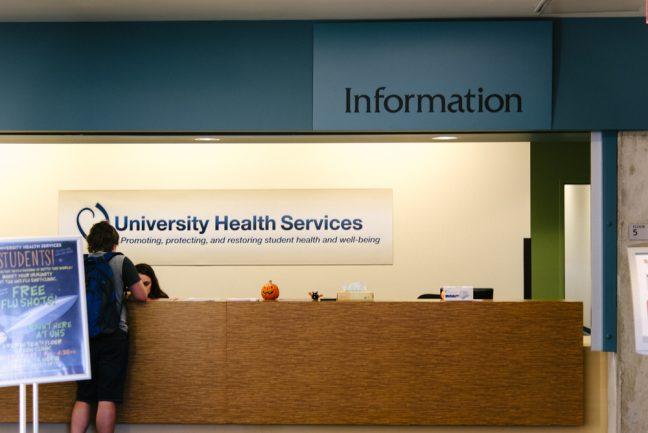Conversations between University Health Services and Accessible Reproductive Healthcare Initiative president Jordan Madden Thursday revealed a possible plan to offer subsidized emergency contraception in vending machines on campus.
Currently, emergency contraception at the University of Wisconsin is offered at UHS offices or at local pharmacies. According to UHS, emergency contraception includes Plan B, Paraguard IUD and Ella.
Under a possible plan discussed by Madden and UHS executive director of administrative services Arnold Jennerman, emergency contraception would be offered at a lower price in vending machines at the Student Activity Center.
In an email exchange obtained by The Badger Herald, Madden told Jennerman Thursday there is a desire on the UW campus to see greater access to reproductive healthcare, including emergency contraception.
“There is a growing desire to see [emergency contraception] such as Plan B more easily accessible on campus either through subsidizing their costs and placing them in vending machines on campus, or through offering them for free at UHS like you would condoms,” Madden wrote.
Jennerman said UHS had included an increase in $4,000 for emergency contraception in their 2018-19 proposed budget, but it did not include plans for a vending machine distribution service.
In an email to The Badger Herald, UW spokesperson Meredith McGlone said there may be legal issues with dispensing medication in a vending machine.
Jennerman said a broader program for emergency contraception could be funded in addition, but cost and staffing for Madden’s proposed plan raised concerns. Jennerman suggested a pilot program with a fixed cost for Madden’s proposal to serve as a testing period.
Madden and other members of SSFC agreed with Jennerman’s suggestion and formulated a possible pilot program to be set up in the SAC.
Student finance committee discusses expanding amenities, staffing at UHS
“After speaking with other members of the committee, a likely option would be only offering Plan B in the vending machine in the SAC,” Madden wrote. “It is a good ‘pilot’ start and takes a lot of the awkwardness out of interactions for individuals searching for that product.”
Jennerman echoed Madden’s points and said he would be speaking with Bill Kinsey, director of medical services at UHS, about the funding technicalities of the issue.
Madden hopes recent precedent in increasing UHS’s budget will play in his proposal’s favor when he expects it to come to a vote sometime in February.
SSFC granted greater funds than UHS requested when the organization began expanding its mental health programming, Madden said. He hopes the same scenario can play out for his plan to distribute subsidized emergency contraception in vending machines.
Madden said his plan would be introduced to SSFC as a motion to expand UHS’s preexisting budget line item for emergency contraception to include funding for a pilot program involving subsidized Plan B and a vending machine distribution service.
Under Madden’s proposed plan, students would pay somewhere between $10 to $20 for the emergency contraception, an amount which is greatly reduced from its usual price.
“The idea right now is to offer emergency contraception like Plan B in the vending machine in the SAC, and offer it for $10 as opposed to its standard $50 price that you would see at a pharmacy,” Madden said.
Madden said total costs of the program must be determined before going forward, including data on how often the contraception needs to be restocked and how often it will actually be used.
UHS replaces Tonight program, looks to broaden conversation about sexual violence
While the program is still being formulated and has yet to be voted on by SSFC, Madden is optimistic about its future. If the pilot program is a success, he hopes it can be expanded to other areas on campus which have vending machines.
McGlone emphasized that Madden’s idea for increased access to emergency contraception is, as it stands, a request from a student representative, and not a plan of the university nor UHS. The university has not approved any such plan.
If the program were to be implemented, however, Madden said it would make UW one of the most progressive campuses in the U.S. when it comes to accessible reproductive healthcare.
“Another benefit of having it in the vending machine is that it privatizes the matter of getting [emergency contraception] in a way that few other campuses or few other places in the country offer,” Madden said. “So UW-Madison would be highly progressive in that matter.”
Madden said he expects the proposal to be discussed and voted on by SSFC sometime in February.
_____
Update 1:17 p.m.: This article has been updated to include statements from UW spokesperson Meredith McGlone.













